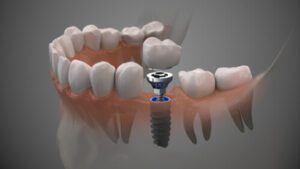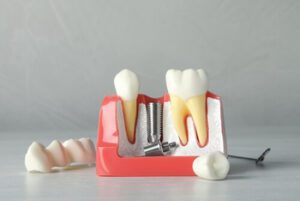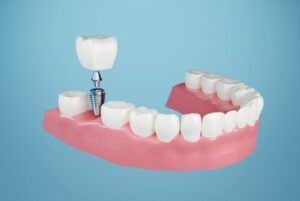In today’s dental landscape, the quest for a radiant smile doesn’t have to come with an exorbitant price tag. Affordable dental implants are breaking barriers, making the gold standard of tooth replacement accessible to many. Gone are the days when dental implants were considered a luxury, reserved only for the few. With technological advancements and a broader understanding of patient needs, dental implants are becoming a reality for many, irrespective of their budget. Dive in as we unravel the transformative power of affordable dental implants and how they’re changing smiles and lives in places like Melbourne and beyond.
The Cost of Neglecting Dental Health

When we speak of health, oral health might not always be the first thing that comes to mind. Yet, the implications of overlooking dental well-being are vast, stretching beyond just a simple toothache or an unsightly gap in one’s smile. Let’s unpack the consequences of neglecting dental health, specifically focusing on missing teeth and the significance of seeking solutions like dental implants.
1. Physical Implications
Digestion Issues: Teeth aren’t merely for show. They play a crucial role in breaking down food. Missing teeth can result in an inability to chew properly, leading to digestive problems. Over time, this can lead to more severe gastrointestinal issues.
Bite Misalignment: Losing a tooth and not replacing it can cause the neighbouring teeth to shift. This shift can lead to bite misalignment, which, in turn, might require orthodontic intervention in the future.
Bone Loss: One of the lesser-known yet significant consequences of missing teeth is jawbone deterioration. Natural teeth stimulate the jawbone. When they’re missing, no stimulation leads to bone loss. This makes dental implant surgery more complex, often requiring bone grafting.
2. Aesthetic Concerns
Altered Facial Structure: Missing teeth, especially when multiple are gone, can lead to facial sagging. The jawbone provides structure and support to the face. As it deteriorates, one might notice premature ageing signs.
Speech Difficulties: Teeth play a pivotal role in speech. Missing teeth, particularly the front ones, can lead to lisping or other speech impediments. Over time, this can affect one’s confidence and communication abilities.
3. Emotional and Psychological Ramifications
Diminished Self-esteem: A smile, often considered a window to one’s soul, can drastically influence self-perception. Gaps from missing teeth can cause self-consciousness, leading many to avoid smiling or engaging in social interactions.
Mental Health Implications: Constantly aware of one’s dental shortcomings can lead to anxiety and depression. The stress of facing potential complications or costs, like those associated with dental implants, can further amplify these feelings.
4. Economic Impact
Escalating Costs: It’s a common misconception that ignoring a missing tooth will save money. However, the truth is the opposite. The longer one waits, the more complications arise. What could’ve been solved with a single-tooth dental implant might now require extensive procedures, escalating the cost of dental implants.
Lost Opportunities: Believe it or not, dental health can influence career opportunities. Many roles, especially those in client-facing positions or where presentation matters, can be impacted by dental appearance.
Traditional Dental Implants: A Cost Analysis
Dental implants have revolutionised restorative dentistry, standing out as the premier solution for missing teeth. Particularly in bustling cities like Melbourne, the allure of dental implants is unmistakable. But with such an innovative procedure comes the ever-present question: How much do dental implants cost?
Understanding Traditional Dental Implants
Before delving into the financial aspects, it’s essential to grasp what traditional dental implants entail. At their core, dental implants are titanium posts surgically positioned into the jawbone beneath the gum line. This post acts as a sturdy anchor for replacement teeth or a bridge. Unlike dentures, which can be removed, dental implants are permanent, offering a feel, function, and appearance akin to natural teeth.
Factors Influencing Dental Implant Cost
Number and Type of Implants:
A single-tooth dental implant will naturally cost less than full-mouth dental implants. The type of implant, traditional or mini implants, can also sway the price.
Location of the Implant Dentist:
An urban area might carry a premium due to higher operational costs for getting dental implants, Melbourne, for example. Dental implants in Melbourne might be expensive due to higher operational costs, real estate prices, and expertise in such cosmopolitan locales.
The expertise of the Implant Dentist:
As with many medical services, you often pay for expertise. A seasoned implant dentist, boasting years of experience and a trail of successful procedures, might charge more. However, the peace of mind that comes with knowing you’re in skilled hands can often justify the added cost.
Materials Used:
High-quality dental implants crafted from the best materials will naturally cost more than their cheaper counterparts. The choice of material can also influence the longevity and appearance of the implant.
Additional Procedures:
Some patients require preparatory procedures before the dental implant surgery. Bone grafting, for instance, is needed if the jawbone isn’t thick enough or is too soft. These additional procedures will add to the overall dental implant cost.
The Price Breakdown: What Are You Paying For?
Consultation Fee: Before the dental implant procedure commences, there’s typically a consultation. This fee covers the diagnostic tests and the dentist’s time to craft a personalised treatment plan.
The Implant Itself: This is the titanium post embedded into the jawbone. It’s the foundation of the entire dental implant treatment.
The Abutment: This component connects the implant to the artificial tooth. While it might seem like a small part, its role is pivotal and often separately charged.
The Crown: The visible part of the dental implant, the crown, is tailored to match the colour and shape of the patient’s natural teeth. Its crafting requires precision and expertise, factors that influence its cost.
Surgery Costs: The dental implant procedure is a surgical process. As such, you’re also paying for the surgical expertise of the dentist, the anaesthesia, and the operational costs of the clinic.
Comparing Costs with Other Dental Procedures

It’s tempting to look at the dental implant cost and consider other, seemingly more affordable options like bridges or dentures. However, a holistic view is crucial. Dental implants might have a steeper upfront cost, but their durability, coupled with the low maintenance they require, often makes them more cost-effective in the long run. They don’t need regular adjustments like dentures, and there’s no risk of them slipping out of place, saving potential future embarrassment and costs.
Furthermore, dental implants safeguard against jawbone deterioration, a natural occurrence when teeth are missing. In preserving the jawbone’s integrity, they save potential costs associated with bone-related complications.
Financing and Payment Plans
For many, the cost of dental implants, while justified, isn’t a sum easily dispensed in one go. It’s a considerable investment. Herein lies the value of financing – it bridges the gap between a patient’s dental needs and their current financial situation. Offering payment plans and financing options isn’t just a compassionate move by dental clinics; it’s a testament to the understanding that oral health shouldn’t be compromised due to monetary constraints.
Dental Clinics’ In-House Payment Plans
- Interest-Free Plans: Some dental clinics offer interest-free payment plans for their patients. These plans typically allow patients to split the dental implant cost over several months or years without any added interest. This approach ensures the procedure remains affordable without the financial burden of interest.
- Extended Payment Plans: Some clinics offer extended payment plans for those needing more time to manage the payment. These might stretch beyond the interest-free period and could incur some interest, but they offer flexibility in repayment duration.
- Upfront Deposits: Certain plans may require an upfront deposit. This initial payment is a fraction of the total dental implant cost, with the remainder split over the agreed-upon period.
Third-Party Financing Options
Medical Credit Cards: Specific credit cards cater exclusively to medical expenses, dental procedures included. These cards often come with promotional interest-free periods, after which standard interest rates apply.
Personal Loans: Another avenue to explore is traditional personal loans from banks or credit unions. Depending on one’s credit score and the institution’s terms, this could be a viable means to finance the dental implant procedure.
Specialised Medical Loan Services: Some financial service providers specialise in loans for medical procedures. They often partner with dental clinics, allowing for more streamlined loan approval processes.
Insurance Coverage
Dental Coverage: While not all dental insurance plans cover dental implants, the landscape changes. As dental implants become more commonplace, many insurance providers are offering partial coverage. It’s imperative to thoroughly read through one’s policy or consult the insurance provider to ascertain what’s covered.
Health Savings Accounts (HSAs) and Flexible Spending Accounts (FSAs): For those with HSAs or FSAs, these funds can often be used towards dental procedures. These pre-tax contributions can significantly offset the dental implant cost.
Things to Consider When Opting for Financing
Read the Fine Print: As with any financial agreement, it’s crucial to understand the terms fully. Are there any hidden fees? What happens if a payment is missed? Knowledge of these specifics can prevent unpleasant surprises down the line.
Compare Options: Don’t jump into the first financing option presented. Research and compare various plans, whether from the dental clinic or third-party providers. This due diligence ensures you get the most favourable terms.
Understand the Long-Term Implications: Financing essentially spreads out the cost, making it more manageable in the short term. However, it’s essential to ensure that the monthly or quarterly payments are sustainable for the duration of the payment period.
Keep an Eye on Interest Rates: If considering a plan with interest, be keenly aware of the rate. Over time, high interest rates can significantly add to the total amount repaid.
The journey to restoring one’s smile with the dental implants process, especially in a hub like Melbourne, is undeniably transformative. But it’s a journey that comes with costs. Thankfully, these costs become far more manageable with the myriad financing and payment plans available today. Dental clinics and financial institutions recognise dental implants’ profound impact on an individual’s quality of life, and their financing options reflect this understanding. With careful planning, due diligence, and the right financing fit, the dream of perfecting one’s smile with dental implants becomes an attainable reality for many.
Things to Consider When Going for Affordable Options
The allure of a gleaming smile, complete with a full set of pearly whites, is universally acknowledged. In bustling metropolitan areas like Melbourne, where personal interactions are often the norm, the significance of a confident smile can’t be overstated. Dental implants have emerged as a leading solution for those missing teeth. However, many are looking for more affordable options, given the associated costs. While affordable dental implants can indeed provide immense value, it’s crucial to approach them with an informed perspective. Here are several key considerations when venturing down the path of affordable dental implant options.
1. Understanding the True Meaning of ‘Affordable’
It’s vital to differentiate between ‘affordable’ and ‘cheap’. Affordable dental implants imply value for money without compromising on quality. On the other hand, suspiciously cheap dental implants might indicate subpar materials, inexperienced professionals, or even a lack of necessary hygiene standards.
2. Reputation Matters
Clinic’s Reputation:
Researching your chosen clinic’s history, success rate, and patient feedback can provide a clearer picture of what to expect. Platforms like Google Reviews or local Melbourne forums can be insightful.
Dentist’s Expertise:
The implant dentist’s qualifications, experience, and past patient outcomes are pivotal in the procedure’s success. Ensure that the dentist is appropriately certified and has a history of successful dental implant surgeries.
3. Comprehensive Consultation
Never underestimate the importance of a detailed consultation.
Personalised Treatment Plans: A reputable clinic will offer a tailored treatment plan after assessing your oral health. This plan should detail the dental implant procedure, pre-requisite treatments, costs, and aftercare.
Open Communication: Ensure the dentist is open to addressing concerns and questions. An open dialogue ensures clarity about the dental implant process.
4. Materials and Components
Quality over Price: While seeking affordable options, the materials’ quality should never be compromised. Substandard materials might reduce costs in the short term but can lead to complications or early replacements in the future.
Transparency: Clinics should be transparent about the materials they use. Reputed clinics often use dental implants from recognised international brands known for their quality and longevity.
5. Additional Procedures and Their Necessity
Some patients might require additional procedures like bone grafting before the dental implant surgery.
Assessment: Ensure that the recommendation for any adjunct procedure is based on thorough diagnostics and is genuinely necessary.
Cost Implications: Understand the costs associated with these added procedures. Some clinics offer package deals that include these treatments, while others charge separately.
6. Warranty and Post-Procedure Support
Warranty: A clinic confident in its dental implant treatment quality will often offer a warranty. This warranty can range from a few years to a lifetime, depending on the clinic and the specific treatment.
Follow-up Care: Post-procedure care is as crucial as the surgery itself. Ensure that the chosen clinic offers robust aftercare support, including regular check-ups and readily available consultations in case of concerns.
7. Overseas Options: Dental Tourism
While Melbourne boasts a plethora of high-quality dental clinics, the allure of dental tourism, venturing overseas for affordable dental implants, is growing.
Research: If considering dental tourism, it’s paramount to research the chosen destination, its dental standards, and patient reviews.
Hidden Costs: The procedure might seem cheaper overseas, but factor in travel, accommodation, potential return visits, and any complications that might arise.
Local Aftercare: Once back in Melbourne, find a local dentist willing to provide aftercare for an overseas procedure. Not all dentists might be comfortable doing so.
8. Payment Plans and Hidden Fees
While many clinics offer payment plans for their dental implant treatments, being wary of any hidden fees or charges is essential.
Transparent Breakdown: A reputable clinic will provide a clear breakdown of all costs, ensuring no surprises.
Interest Rates: If the payment plan includes interest, understand the rate and calculate the total cost over the payment period.
The journey to reclaiming one’s smile via dental implants is transformative, promising enhanced aesthetics and functionality. Affordable options, especially in a metropolitan hub like Melbourne, can make this transformation accessible to many. However, ‘affordable’ should never come at the expense of quality and safety.
Benefits of Affordable Dental Implants

- Enhanced Self-confidence and Esteem
- Restored Smile: A complete set of teeth, free from gaps, can dramatically improve one’s facial aesthetics. It allows individuals to smile without inhibition, knowing their teeth look natural and radiant.
- Improved Self-perception: Missing teeth can often lead to diminished self-worth and confidence. By restoring their smile with dental implants, many individuals experience a boost in their self-esteem, enabling them to engage in social and professional situations with renewed vigour.
- Optimal Oral Health
- Protection of Natural Teeth: One of the standout features of dental implants, especially compared to other dental prosthetics like bridges, is that they don’t rely on adjacent natural teeth for support. This means the integrity of the surrounding natural teeth remains uncompromised.
- Prevention of Bone Loss: When a tooth is missing, the lack of stimulation often leads to jawbone deterioration. Dental implants, acting as artificial tooth roots, provide the necessary stimulation to the jawbone, preventing this bone loss.
- Longevity and Durability
- Built to Last: High-quality dental implants, even the affordable ones, are designed to withstand the rigours of daily life. With proper care, they can last several decades, if not a lifetime.
- Minimal Maintenance: Dental implants are a long-term solution, unlike dentures, which may require frequent adjustments or replacements. Their maintenance mirrors that of natural teeth: regular brushing, flossing, and dental check-ups.
- Comfort and Functionality
- Natural Feel: Dental implants mimic the structure of natural teeth. Once integrated with the jawbone, they feel and function just like one’s own teeth. There’s no discomfort or foreign feeling often associated with removable dentures.
- Uncompromised Eating: With missing teeth or unstable prosthetics, individuals often have to forgo certain foods or chew cautiously. Dental implants restore full chewing power, allowing individuals to enjoy their favourite foods without restraint.
- Economic Value Over Time
- Cost-Effective in the Long Run: While the initial cost of dental implants might seem steep, especially in cities like Melbourne, their longevity and low maintenance make them a cost-effective solution over time. Affordable dental implants offer excellent value when you factor in the potential costs associated with complications from missing teeth or the maintenance of other dental prosthetics.
- Prevention of Further Dental Issues: By opting for dental implants soon after losing a tooth, individuals can prevent many complications, from shifting teeth to bite issues, thereby saving on potential future dental treatments.
- Aesthetically Pleasing Outcome
- Customisation: Dental implants are tailored to match the individual’s existing teeth in size, shape, and colour. This attention to detail ensures that they seamlessly blend in, providing a natural-looking outcome.
- Youthful Appearance: Missing teeth can often lead to facial sagging and premature ageing. By restoring the dental structure, implants help maintain the face’s natural shape and contour.
Affordable tooth implants are more than just a budget-friendly alternative. They encapsulate the essence of modern restorative dentistry: providing optimal function, aesthetics, and health benefits without the need for exorbitant expenses. Especially in a cosmopolitan hub like Melbourne, where first impressions can make or break opportunities, investing in one’s smile through dental implants is a decision that offers profound, lasting benefits.
Conclusion
Navigating the world of dental solutions can be overwhelming, but the choice becomes clear with the myriad benefits of affordable dental implants. They’re a testament to modern dental innovation and a beacon of hope for those yearning for a renewed smile without breaking the bank. Especially in a vibrant city like Melbourne, the value of a confident smile is unparalleled. Don’t leave it to chance if you’re considering this transformative procedure. Trust the experts. Contact Balmoral Dental Centre at (07) 3113 9789 and embark on a journey towards optimal oral health and a radiant smile that lasts a lifetime. Your dream smile is just a call away.
References
https://my.clevelandclinic.org/health/treatments/10903-dental-implants
https://www.dentalhealth.org/dental-implants

